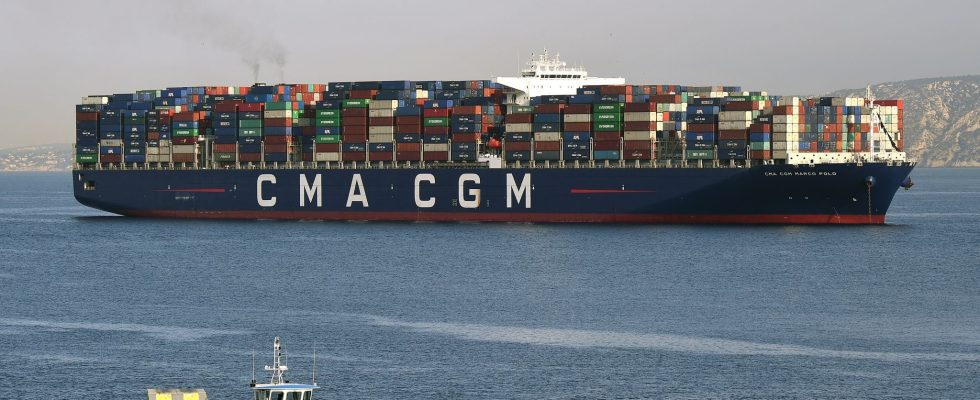The Red Sea passage is more critical than ever for cargo ships sailing from the Indian Ocean to the Mediterranean. Yemeni rebels are increasing missile attacks and drone attacks near the Bab al-Mandab Strait, between Africa and the Arabian Peninsula, countered by American and French vessels patrolling the area. The world shipping giants, the Danish Maersk, the French CMA CGM and recently the Taiwanese Evergreen have announced that they are suspending crossings of the Red Sea, at the cost of long detours. For Pierre Cariou, economist specializing in maritime transport and professor at Kedge Business School, the additional cost is manageable for the moment. If the crisis continues, other consequences on supply chains can be expected.
L’Express: Yemen’s Houthi rebels are increasing attacks on ships in the Red Sea. Is global shipping under threat?
Pierre Cariou: This situation follows a series of events which have affected the sector in recent years, between the disorders linked to Covid, the blockage of the Suez Canal by the container ship Ever Given and the drought which hinders the passage of the Panama Canal . Today, it is geopolitics that is disrupting the Suez Canal, through which between 10% and 15% of world maritime trade passes. Above all, 60% to 80% of European imports take this route. It is through it that oil, coal, iron ore, semi-manufactured and finished products pass.
How are shipowners reacting?
They chose to divert to the Cape of Good Hope, in South Africa, which extends the sea journey by 10 days. Beyond issues of seafarer safety and insurance, this alternative route will have impacts on the logistics chain. Certainly, these events occur at a time which is not too unfavorable, because the deliveries intended to prepare for Christmas arrived two months ago. On the other hand, it will generate additional costs. Ten additional days, for goods leaving China for Europe, that means 45 days of navigation instead of 35. However, a ship at sea costs around 60,000 dollars per day: we must therefore count 600,000 dollars moreover. On the scale of a large container ship, this sum is not insurmountable. Especially since by avoiding the Suez Canal, these ships save passage rights, by an approximately equivalent amount. But this detour causes additional fuel costs, an item which represents half of the transport cost.
Should we expect a significant impact on the final price?
Importers will want to secure their supplies and shipowners could be tempted to take advantage of this, by increasing their prices by 20% when their costs are only increasing by 10%. This may seem like a lot, but in reality it is painless for many products. Let’s take the example of an iPad traveling from Shanghai to Rotterdam. The transport cost per unit is around 5 cents, and could rise to 7 cents. The problem is mainly that of delay. A 2% price increase for a computer does not change the purchasing decision. On the other hand, if you have to wait 20 days…
Since the Covid crisis, how have maritime transport prices evolved?
The situation is incommensurable with 2020-2021, when transport costs more than quadrupled! The cost per container had climbed to $10,000. It had returned in recent months to between 1,000 and 1,500 dollars, levels which prevailed before 2020. We even noted significant overcapacity.
How do you see the situation evolving in the short or medium term?
Everything will depend on the duration of this crisis, because it is not easy to secure a 30 kilometer strait. With these lengthened journeys, the overcapacities that we observed recently could be absorbed. Shipowners adjust their behavior quickly. Will shippers also choose to change their strategy? They have had problems with the Suez Canal twice. The passage of the Panama Canal has also become complicated. Today, geopolitical tensions are such that they can amplify a movement that we had already begun to observe, that of the shift in supply chains. Some European manufacturers could therefore choose to transfer their Asian production to other, closer countries, such as Turkey or Morocco.
